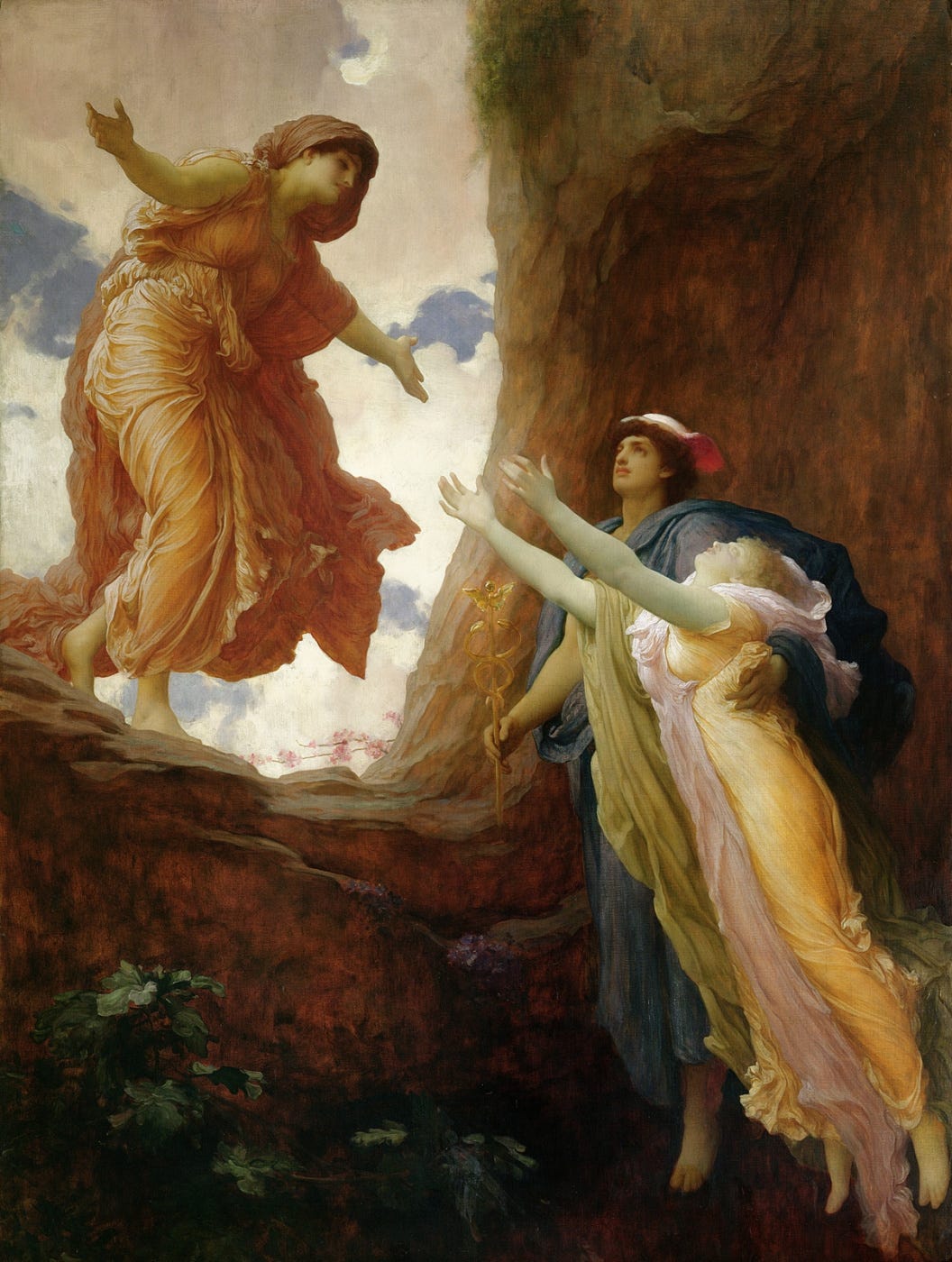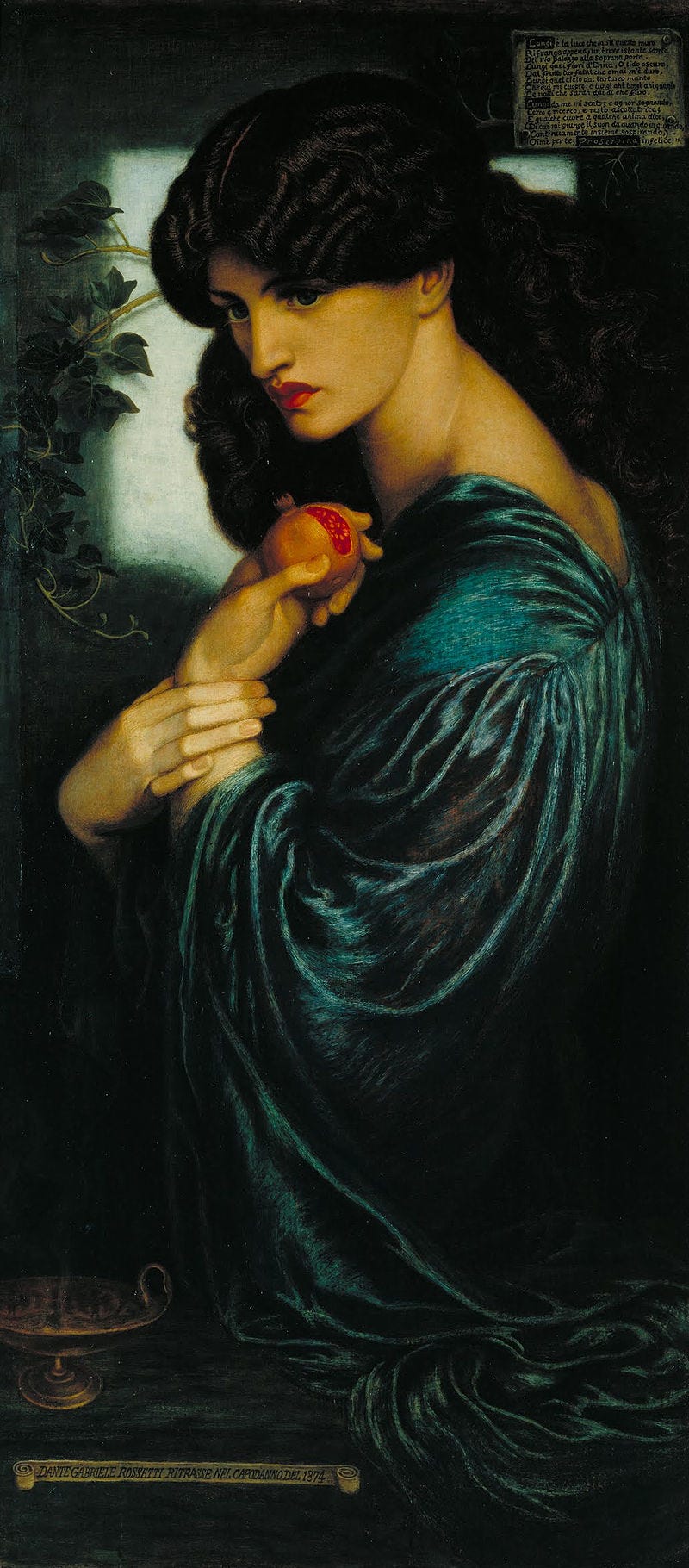A. S. Byatt and the possession of knowledge
A look into Byatt's fascinating novel that constructs a bridge between the Victorian period and the present through poetry
A. S. Byatt’s novel Possession opens with a scene that feels deceptively ordinary: Roland Michell, a struggling academic (who else can strongly relate to this?), sits in the London Library, poring over papers that seem, at first, to be routine. But when Roland discovers an unfinished letter tucked into a book once belonging to the Victorian poet Randolph Ash, the novel takes a turn into an extraordinary exploration of knowledge, secrets, and the intersections between past and present. Byatt’s work becomes a literary puzzle, a passionate love story, and, above all, a meditation on the human thirst to possess knowledge.
In Chapter 1, Byatt sets the stage for her intricate narrative with an evocative epigraph, an extract from a poem written by Ash, referencing the mythological Garden of the Hesperides:
These things are there. The garden and the tree
The serpent at its root, the fruit of gold
The woman in the shadow of the boughs…
An epigraph sets the stage for what is to come, and creates connections and dialogue through intertextuality. This passage about the garden, the tree, the serpent and the woman (so evocative of another garden) frames the novel’s central themes. The golden fruit, guarded by the dragon Ladon, symbolizes not only the treasures of knowledge but also the cost and complexity of seeking it. Like Hercules, who steals the fruit, Roland and his fellow scholars wrestle with the ethics of their quest, unearthing private lives and intimate secrets in their pursuit of literary truth. Is Roland’s theft any less honorable than Hercules’?
Roland’s discovery sets him on a journey that blurs the boundaries between personal and professional. He steals Ash’s letter as a way to possess that narrative, setting the tone for the novel’s interrogation of who owns history and who has the right to tell its stories. As he delves deeper into Ash’s life and his connection to the poet Christabel LaMotte, Roland’s academic pursuit becomes a mirror for the reader’s own role as detective and voyeur.
The novel continually asks: What do we owe to the past? Is it reverence? Protection? Or is it acceptable to claim and reinterpret the stories that came before us? Just as the dragon Ladon guarded the golden apples, Byatt’s characters confront the barriers, both literal and metaphorical, that protect the hidden truths of Ash and LaMotte.
This intersection between past and present is not merely thematic in the found letters but structural. Byatt moves fluidly between Victorian poetry, modern prose, scholarly annotations, historical letters, and more, creating a tapestry of texts and genres. This palimpsest (a term used by Byatt in her introduction to the novel) reminds us of the continuous, cyclical human desire to understand, to connect, and to possess. The very act of scholarship, rooted in dusty libraries and meticulous research, becomes a metaphor for the human longing to possess the past.
The poem written by Ash (although, really, written by Byatt) is called The Garden of Proserpina. She is the Roman goddess who was abducted by Pluto, the god of the Underworld, into the world of the dead. She has been brought to life by many artists, including the painter Dante Gabriel Rossetti, one of the founding members of the Pre-Raphaelite Brotherhood. You may have seen this beautiful and intriguing painting before (see the first image in this post). Rossetti depicts Proserpina holding a pomegranate (not the apple, as Eve, but also a forbidden fruit). The legend says that Proserpina ate the pomegranate seeds offered by Pluto. However, those who taste the food from the Underworld cannot return to the world of the living.
Rossetti’s painting shows Proserpina holding the fruit that binds her to the world of the dead. The image resonates with the golden apples of the Hesperides, mentioned in Ash’s poem, both representing the risky fascination of forbidden knowledge and the irreversible consequences of seeking it. The same goes for Roland, whose pursuit of truth leads to unforeseen consequences.

The recurring references to myth (the Hesperides, Proserpina, and even echoes of Eden) serve as a bridge between the Victorian and modern narratives. Mythology becomes a way of understanding the timeless nature of human struggles. It is not coincidence that the book in which Roland found the lost letters was Ash’s copy of Giambattista Vico’s Principi di Scienza Nuova. As Byatt puts it herself, “Vico had looked for historical fact in the poetic metaphors of myth and legend; this piercing together was his ‘new science’” .
Byatt’s epigraph to Chapter 1 reminds us that these stories are always present, waiting to be rediscovered. "They are and were there," she writes, emphasizing the continuity of myths and their resonance across time. The past does not merely inform the present; it inhabits it, shaping our lives and our choices in ways we may not fully comprehend. Similarly, the choices we make in the present may change the way the past has been understood. To claim something (whether it’s a piece of history, a work of art, or another person’s heart) is also, inevitably, to alter it. By uncovering Ash’s hidden relationship, Roland brings it to light, but he also risks diminishing its mystery and sanctity.
The golden apples of the Hesperides glow eternally, their allure undiminished by time. In the same way, Possession reminds us that the pursuit of knowledge is both a privilege and a responsibility. Byatt’s novel challenges us to consider what we seek to possess and what we leave in the shadows, guarded and eternal.
Possession is the first book that we discuss in the year-long program Read the Classics in 2025 with Books & Culture. The members have now received an introductory video lesson, a preparatory material in PDF, and a video in which I read and discuss the introduction, epigraph and first chapter of the novel. I have chosen this book to kick off our program, because it is a book about literature, about connecting with the past through pages, about the human desire to possess knowledge. If you’d like to receive this material and be part of the program (you will still receive an in-depth video lecture about the book, an academic reference text to enrich your reading experience, and an invitation to our upcoming online book discussion), sign up right now via the link. You do not want to miss this literary journey!





Hello! This post has completely sold me on Possession, and I wanted to ask if the material for it would still be available or if it was only for Jan/Feb..